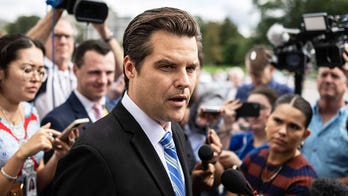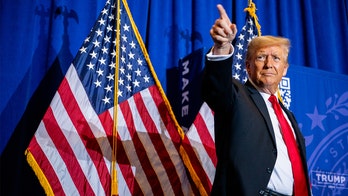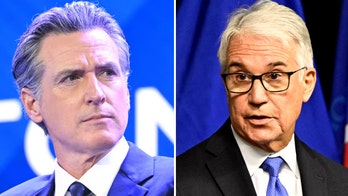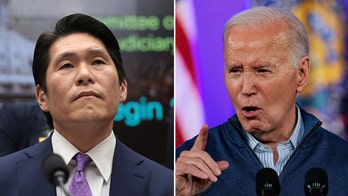Pressure on Holder to speak out against pot legalization
Dan Springer reports from Seattle, Washington
Advocates of legalizing marijuana for recreational use may be closing in on their first statewide victory. Voter initiatives that would legalize up to an ounce of pot will be on the ballot in three states in November: Oregon, Colorado and Washington State. Polling shows the measures leading in Washington and Colorado with at least 50 percent support.
“If Washington or Colorado wins in November, and both of them have a good chance to do so, it is going to be transformative in the way we think about marijuana policy in this country and even outside,” says longtime legalization advocate Ethan Nadelmann of the Drug Policy Alliance.
There’s little organized opposition in Washington State. Interestingly, many of those who have spoken publicly against legalization are in the medical marijuana community. While some worry about pot dispensaries being put out of business, others fear new DUI laws that could make it illegal to be driving with even a trace of THC in one’s system.
Still, opponents have raised only $6,000 compared to supporters, who have collected more than $4 million. The single biggest contributor has been Peter Lewis, the chairman of Progressive Insurance and a mega donor to liberal causes. He has given $1.6 million to the New Approach Washington campaign.
To combat the cash imbalance, nine former heads of the U.S. Drug Enforcement Administration sent a letter to Attorney General Eric Holder urging him to speak out against legalization. There’s been no response.
President Obama and his drug czar Gil Kerlikowski also have been mum even though the government’s website is full of warnings. The Office of National Drug Control Policy quotes a study that found 1 in 6 kids who tries marijuana is at risk of developing a drug addiction in their life. Also, the most recent National Survey on Drug Use and Health finds marijuana use among teenagers up sharply to almost 17 million, a 7-year high. More than 6 percent of high school seniors said they smoked pot daily.
President George Bush’s drug czar, John Walters, can’t understand why President Obama is not using his bully pulpit.
“I think it’s shocking that Attorney General Holder, the Director Kerlikowski, but most of all the president of the United States, can’t talk about this,” says Walters. “It’s about health, it’s about safety, it’s about the future of the country.”
Meantime, Initiative 502 in Washington State keeps racking up endorsements. Most elected leaders in Seattle support the measure, including the current sheriff and his opponent in the upcoming election. Former U.S. Attorney John McKay is one of its sponsors. But the most stunning endorsement came from the Children’s Alliance, an umbrella organization for 100 child welfare groups.
Jon Gould, Deputy Director of the Children’s Alliance, says marijuana laws are being enforced unevenly and that hurts minorities and the poor.
“If those kids’ parents are shut out of housing, shut out of employment, shut out of education opportunities, we’re not helping those kids,” says Gould.
Legalization opponents argue very few people are locked up for marijuana possession. A survey by the Bureau of Justice Statistics showed that .07% of all state inmates were busted for marijuana possession only.
“We need to understand that drugs and gangs go hand in hand,” says Paul Chabot, who advised Presidents Clinton and Bush on drug policy. “They destroy communities. What we have to do is work keeping people off this stuff, not liberalizing policies.”
Legal or not, young people would still be barred from smoking pot. And critics argue more kids would try it, something the administration has always been against. But so far this election year, instead of using the power of the office, that message has gone up in smoke.





